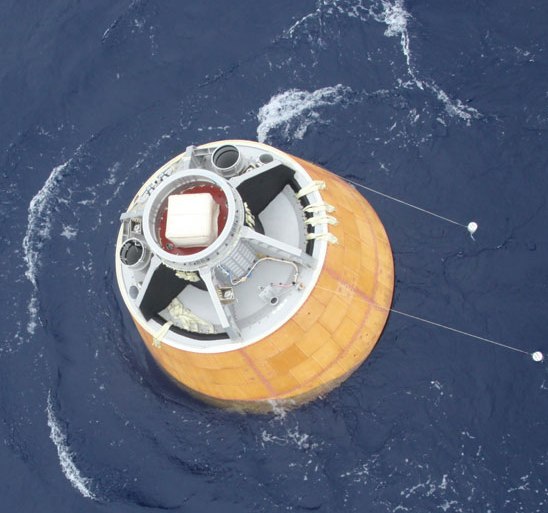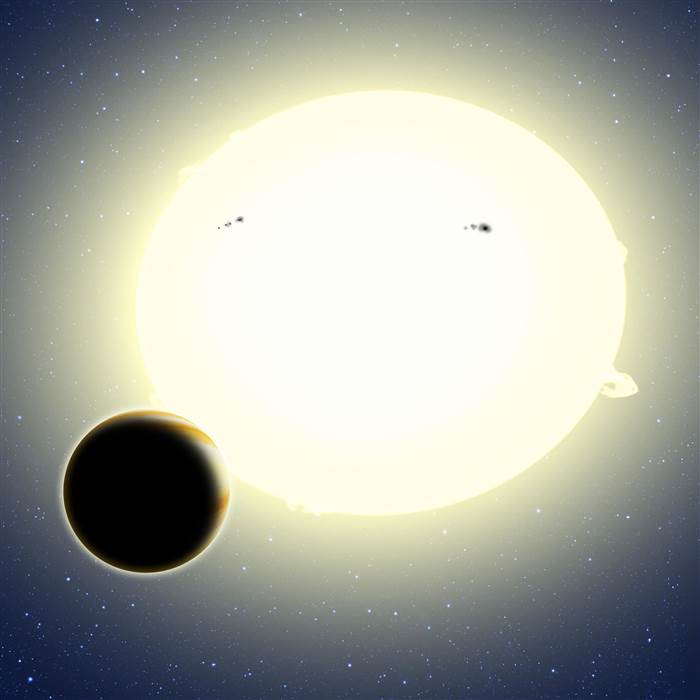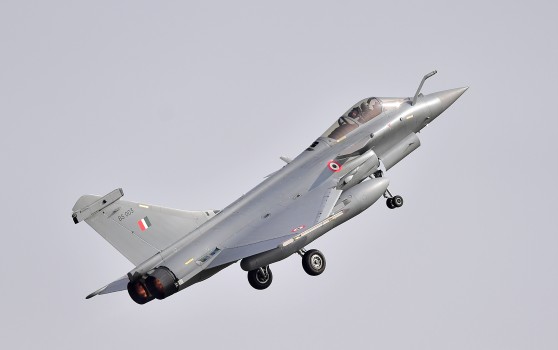
Crew Module floating in the Andaman Sea after splash down. An ISRO photo
CHENNAI (PTI): Few hours after ISRO successfully launched the GSLV Mk III rocket from Sriharikota, which separated an unmanned crew module at an altitude of around 126 km, an Indian Coast Guard ship recovered the three-tonne weighing module, which had safely descended in the Bay of Bengal off Andaman and Nicobar Islands.
A Coast Guard ship, ICGS Samudra Paheredar, with ISRO officials on board, recovered the crew module along with its divers on board, after a Dornier aircraft from Campbell Bay of Great Nicobar Island signaled her about its location while carrying out a surveillance in the area around 9.45 am Thursday, an official release said.
The helicopter, on board the ship, earlier carried out a pollution test in the area, it said.
The ship equipped with advance telemetry system from ISRO for tracking the crew module had provided range clearance for safe landing of the module on December 16.
"The ship has tracked the crew module during its passage from launch to its re-entry and its subsequent landing at sea," the release said.
Inching towards realising India's ambition to send humans into space, ISRO on Thursday successfully tested an unmanned crew module recovery from space, even as it tested the two stages of its heaviest launch vehicle GSLV Mk III from Sriharikota.
The rocket lifted off at 9.30 am from Satish Dhawan Space Centre, separated the crew module at an altitude of 126 km, which descended safely on the waters of Bay of Bengal, some 180 km from Indira Point, the southern tip of Andaman and Nicobar Islands.
 Next Article
Next Article













The Indian Air Force, in its flight trials evaluation report submitted before the Defence Ministry l..
view articleAn insight into the Medium Multi-Role Combat Aircraft competition...
view articleSky enthusiasts can now spot the International Space Station (ISS) commanded by Indian-American astr..
view article